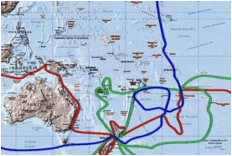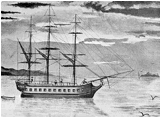Who's a Big Bully Then?
By Michael Morpurgo
Sports Day
It was Sports Day. I've never been good at any ball games like football. I just get pushed around all the time. But running, that's something I can do. So I was looking forward to Sports Day.
I do best in the 200 metres. It had been easy for me to get into the final. There were eight of us in the line, just waiting for the starting gun. Beside me, in the next lane, was big Darren Bishop. This was my chance to show him up, and I was going to take it.
My Dad had come to see me run. He doesn't come into school often. He's always too busy on the farm. But he always comes to Sports Day. And I know why. He loves to see me win.
He was a fast runner himself when he was a kid. Or so he tells me. "That's where you get it from," he says to me.
There Dad was, in the crowd. He was very excited. (Mum won't come because he jumps up and down and shouts and she hates that.)
"Go on, son," Dad shouted. "You can do it. Don't look behind you. Get those legs working."
I waved at him, hoping to shut him up. I did want him there. But he shouts so loudly that people stare and grin and I hate that.
Darren Bishop had seen him and was grinning.
"What a nerd your Dad is!" he said loudly so everyone could hear. "Is he drunk or something?"
I was really angry, but I looked the other way and said nothing. But Darren just went on at me.
"What's it like to have a little idiot for a dad?" He went on. "And your mum's a little idiot too, isn't she?"
That was too much. I turned on him like an angry dog. If he wanted a fight, then he could have one, right now. It was only the starting gun that saved me.
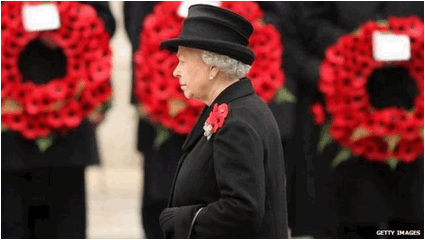
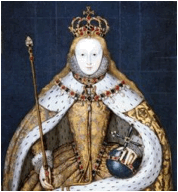
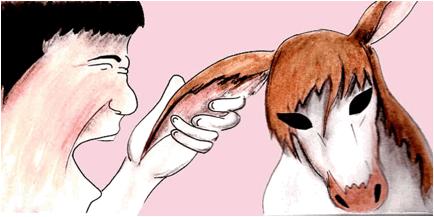
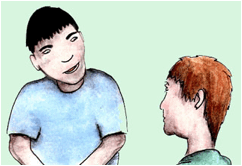 ‘You belong to me?’ said the fool. ‘I cannot own a boy. Go, go, but promise me this: when you go to your mother, do not be rude to her again.’
‘You belong to me?’ said the fool. ‘I cannot own a boy. Go, go, but promise me this: when you go to your mother, do not be rude to her again.’